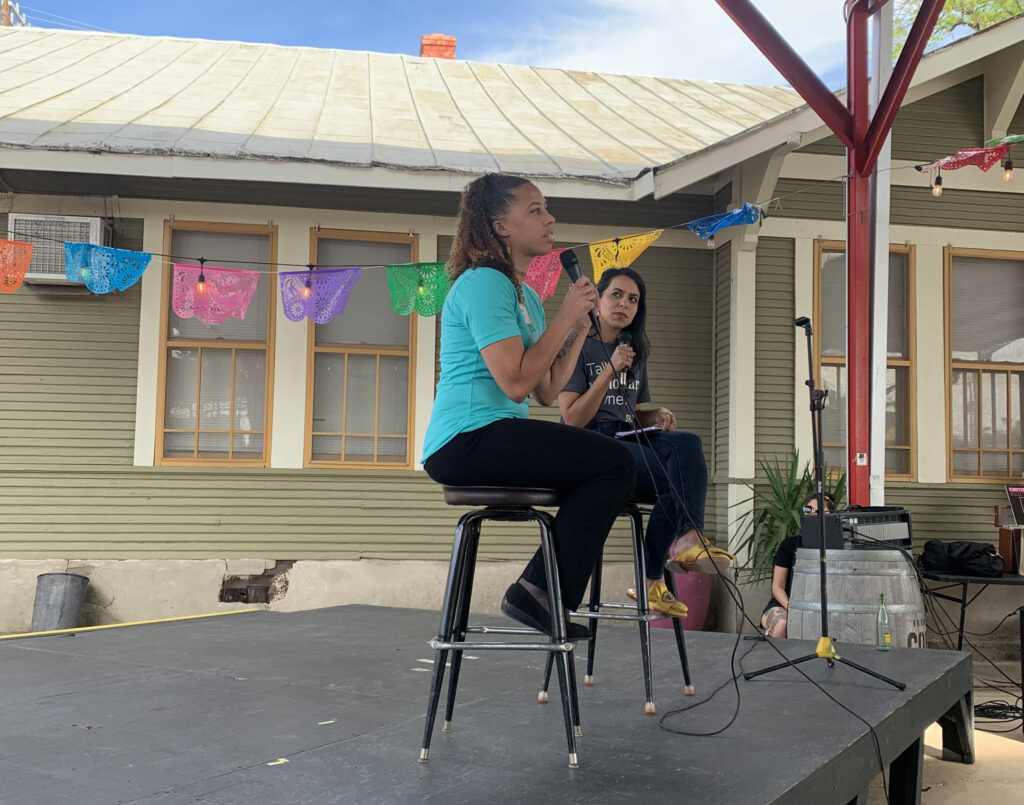Early voting in San Antonio’s municipal election is underway. On the ballot: Mayor, City Council representatives, some school boards and district bonds, and Proposition A—also known as the Justice Charter.
Earlier this month, SA2020 hosted a Meet Up and invited Ananda Tomas, Executive Director of ACT 4 SA, to discuss the power Prop A holds to help reform the justice system, reduce mass incarceration, and move us closer to San Antonio’s Community Vision. Read a summary of the key points below and then learn more about how to support the Justice Charter.
What is the Justice Charter?
This proposition asks voters to consider an amendment to the City’s charter, which is akin to a municipality’s constitution. Proposition A seeks to amend the City Charter of San Antonio to adopt a policy that: ends enforcement of low-level marijuana possession; ends enforcement of abortion crimes; bans chokeholds in policing; bans no-knock warrants; issues citations instead of arrests for low-level nonviolent crimes; and establishes a Justice Director position to implement and oversee the policy.
Why is it important to make these changes in the City Charter?
While some people opposing the Justice Charter say that the District Attorney already declines to prosecute abortion cases and the Chief of Police instituted Cite and Release in 2019, Ananda reminded us that a change in leadership could challenge these positions. Proposition A seeks to codify all of these policies so that they’re a part of the City’s charter, implemented no matter who’s serving as DA or Chief of Police.
What was the process to get Prop A on the ballot?
Proposition A reached the ballot after 20,900 verified signatures were collected on a petition to amend the City Charter. During SA2020’s Meet Up, Ananda described the Justice Charter as “turning protest into policy,” referencing the protests in San Antonio and across the country against unjust, racist policing and the repeal of Roe V. Wade.
What do we know about the opposition to the Justice Charter?
Protect SA, a PAC funding opposition to the Justice Charter, is backed by the San Antonio Police Officers Association (SAPOA). Protect SA has raised the lion’s share of monetary contributions in the municipal election: the nearly $880,000 it’s received makes up 41% of all contributions to candidates or issues this year. Mayor Nirenberg has also encouraged San Antonians to vote against Prop A. Though he says he shares the goal of ending mass incarceration, he believes doing so is the work of the state and federal governments.
What role does local government have in ending mass incarceration?
In Bexar County, 64% of the people in jail are being held pretrial, which means they have not yet been convicted and are legally presumed innocent. Research shows that this is due, in part, to the cost of bail that allows people who can afford it to be released, while “detaining the poor.” As is the case across the country, the local justice system disproportionately harms Black people at every step. While Black people make up 7% of the population in Bexar County, in 2021 they made up 17% of the jail population.
Local government has the power to reduce mass incarceration by issuing citations to hold people accountable for nonviolent offenses, and diverting critical resources toward ending racial inequities. At the cost of $756.66 it takes to book one person at the Bexar County Jail, Cite & Release saved $5.6 million taxpayer dollars between July 2019 and December 2022.
How can folks support the Justice Charter?
- If you’re eligible to vote, vote yes. Early voting runs April 24 – May 2 and Election Day is Saturday, May 6.
- Talk to your friends and family about the Justice Charter and help them make a plan to vote.
- Volunteer to get out the vote through block walking and phone banks.

